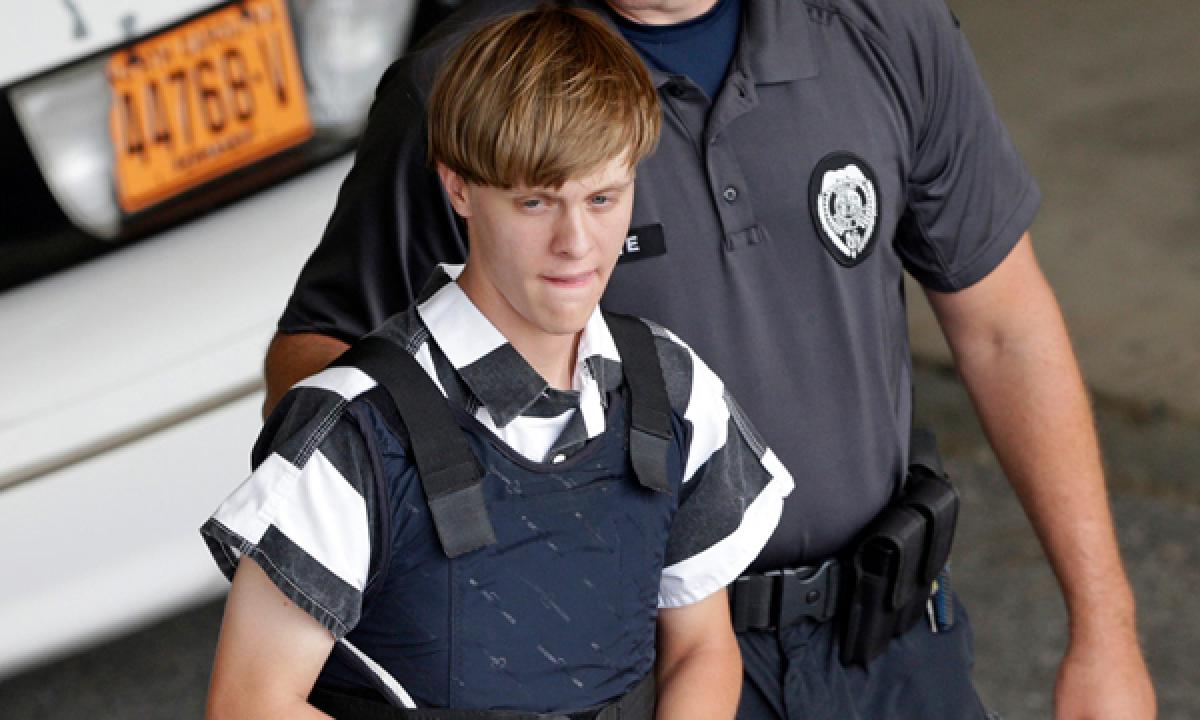Live
- Two Russian oil tankers with 29 on board damaged due to bad weather
- Telangana's Traditions Will Be Protected, Village by Village : BRS Leader MLC K. Kavitha
- Uganda to relocate 5,000 households from landslide-prone areas in eastern region
- Harish Rao Criticizes CM Revanth Reddy: "His Time is Over"
- Vijay Sethupathi Hails 'Vidudala-2' as a Theatrical Game-Changer
- Sahaj Yog: A Path to Inner Transformation and Harmony City takes giant strides
- Allu Arjun meets his uncle Nagababu at his residence
- J&K L-G felicitates Langar organisations & NGOs for contribution during Amarnath Yatra
- Hit by Covid, MP's Rakesh Mishra sees revival of his fortunes, courtesy PM SVANidhi scheme
- Trailblazing Yakshagana Artiste Leelavathi Baipaditthaya No More
Just In

White supremacist, Dylann Roof\'s conviction on federal hate crimes in the Charleston church massacre sets him up to be the first person to face back-to-back federal and state death sentences since the United States reinstated the death penalty at the national level in 1988. Roof, found guilty on Thursday on all counts in the shooting deaths of nine black parishioners at Emanuel African Methodist
White supremacist, Dylann Roof's conviction on federal hate crimes in the Charleston church massacre sets him up to be the first person to face back-to-back federal and state death sentences since the United States reinstated the death penalty at the national level in 1988.
Roof, found guilty on Thursday on all counts in the shooting deaths of nine black parishioners at Emanuel African Methodist Episcopal Church in South Carolina in 2015, begins the punishment phase in his federal trial on January 3.
His state trial on murder charges is expected to start about two weeks after that, and local prosecutors also want him executed. The dual death sentence-eligible trials are unprecedented in the modern era of the United States (US) death penalty, legal experts said on Friday, and raise questions about judicial fairness, the emotional toll on survivors and victims' families and potential legal problems if the two juries reach different decisions.
The shooting where Roof had waited for members of a Bible study group to close their eyes in prayer before opening fire sent shockwaves across the United States. Both US Attorney General, Loretta Lynch and Charleston Solicitor, Scarlett Wilson wanted justice and unlike in lower-profile cases, no deal was reached to allow only one prosecutor to try the case.
Christopher Adams, a Charleston lawyer who is the secretary of the National Association of Criminal Defense Lawyers (NACDL), said the Roof case "is a terrible crime that gets everyone's attention. "However, there has to be an adult decision made and there should only be one trial and it should be as fair as it can be. That decision wasn't made," said Adams who has represented several defendants in death penalty cases.
Outside the historic South Carolina church where the killings took place, several people who came to pay their respects a day after the verdicts said they wanted to see Roof stand trial again.
"I believe the death penalty in this situation is appropriate, even if it's imposed twice," said the Reverend, Paul Tanner Kennedy, 70, visiting from his home in New Jersey. "There are certain things that require retribution."
Roof is facing different charges in the two systems for the killings in Charleston. South Carolina is prosecuting him for murder. The US government prosecuted him on 33 charges that included hate crimes resulting in death.
Since the reinstatement of the federal death penalty in 1988, 75 defendants have been sentenced to death and three others have received a jury recommendation of death but no death sentence from the judge, according to the Death Penalty Information Center (DPIC), which monitors US capital punishment.
There have been three executions since then, including Oklahoma City bomber, Timothy McVeigh in 2001. His accomplice Terry Nichols faced death penalty-eligible federal and state trials about seven years apart for the killings. The federal trial in 1997 was for the death of eight federal officers while the state trial was for the death of 160 others. He was convicted in both trials and sentenced to life in prison without parole in both cases.
Robert Dunham, executive director of the Death Penalty Information Center, said pursuing a second death penalty after one has been handed out stokes criticism that politics plays a role in death penalty prosecutions.
"It makes it appear as though it is less serving the interests of justice and more serving the political interests of the prosecutor," he said.

© 2024 Hyderabad Media House Limited/The Hans India. All rights reserved. Powered by hocalwire.com







